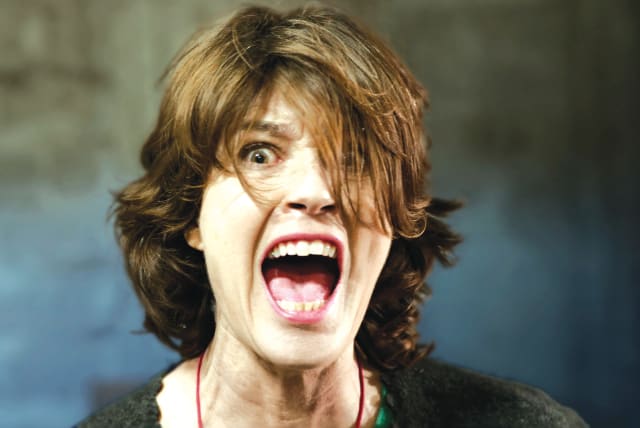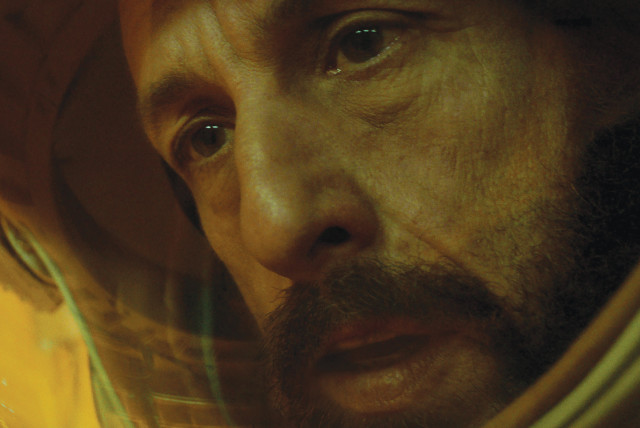Berlinale festival to spotlight Jewish films in wake of war

The festival, which has a long history of welcoming Israeli filmmakers, as well as spotlighting films of Jewish interest and movies that focus on Jewish history, will continue to do so.
The 74th Berlinale, the Berlin International Film Festival, which will take place from February 15-25 this year, released its full lineup on Monday, as well as a statement that references the Israel-Hamas war.
The statement, which does not mention Israel or Hamas by name, seems to be an attempt to cool temperatures to match the Berlin winter weather. It signals that the festival, which has a long history of welcoming Israeli filmmakers, as well as spotlighting films of Jewish interest and movies that focus on Jewish history, will continue to do so.
Nadav Lapid’s Synonyms won the Golden Bear, the festival’s highest honor, in 2019, and last year, Steven Spielberg was the recipient of the Honorary Golden Bear, a lifetime achievement award. Scores of Israeli and Jewish filmmakers have won major prizes at the festival over the years.
The statement by the festival’s co-directors Mariette Rissenbeek and Carlo Chatrian said: “We believe that through the power of films and open discussions, we can help foster empathy, awareness, understanding – even and especially in painful times like these.
“Our sympathy goes out to all the victims of the humanitarian crises in the Middle East and elsewhere. We want everyone’s suffering to be recognized and for our program to be open to discussing different perspectives on the complexity of the world.
“We are also concerned to see that antisemitism, anti-Muslim resentment, and hate speech are spreading in Germany and around the world. As a cultural institution, we take a firm stand against all forms of discrimination and are committed to intercultural understanding.”
They went on to detail several initiatives to promote peaceful dialogue that the festival is setting up, among them the creation of a space called the Tiny House. The space will be managed by Shai Hoffmann, a German citizen from an Israeli family, and Jouanna Hassoun, who came to Germany as a Palestinian refugee. Rissenbeek, who served on the Israeli Feature Film jury at the Haifa International Film Festival in 2023, said that the two were working together to promote dialogue and understanding.
“It’s a tiny house, not an agora, but it’s intended to facilitate individual personal dialogue,” said Rissenbeek.
War-related controversies are nothing new since the outbreak of the war
SINCE THE outbreak of the war following the Hamas massacre on October 7, there have been several controversies concerning the conflict at film festivals, most recently a march at the Sundance Film Festival on Sunday, in which some chanted pro-Hamas slogans, while pro-Israel counter-demonstrators called for the hostages held by Hamas to be released.
This year, there will be several films of Israeli and Jewish interest at the Berlinale. Amos Gitai’s latest movie, Shikun, will be shown in the Berlinale Special section. The movie, which stars French actress, Irene Jacob, as well as Israeli actors Yael Abecassis, Menashe Noy, and Hana Laslo, is about 20 people living in a housing project, known in Hebrew as a “shikun,” in the Negev.
Gitai’s films – among them Kippur, Laila in Haifa, Free Zone, Kadosh, and many others – have won prizes around the world, including at the film festivals in Venice and Cannes, and he has generally received greater acclaim abroad than in Israel.
Made in England: The Films of Powell and Pressburger, is a feature documentary on master British directors Michael Powell and Emeric Pressburger, who was a Jewish Hungarian refugee to England. The documentary is narrated by Killers of the Flower Moon director Martin Scorsese, who will be the recipient of this year’s Golden Bear Award. Powell and Pressburger made such films as the sweeping ballet drama, The Red Shoes. The documentary, which was directed by David Hinton, includes rare archival material from the personal collections of Powell, Pressburger, and Scorsese.
Jewish actors continue to make respectable showings
Adam Sandler has played a Mossad agent, a gem dealer, and a befuddled father of a bat mitzvah girl, and now he will be playing the first Czech astronaut in Johan Renck’s drama, Spaceman, which will have its world premiere at the festival.
Julia von Heinz's movie, Treasure, stars the actor/director/writer Stephen Fry as a Holocaust survivor who reluctantly accompanies his daughter (Lena Dunham, who is best known for the series, Girls) on a journey to Poland, where he was born. The movie is based on the acclaimed book, Too Many Men, by Lily Brett.
Jesse Eisenberg is one of America’s top Jewish actors, but he will be utterly unrecognizable in Sasquatch Sunset, in which he – and all the other actors, among them Riley Keough – wear heavy prosthetics to play a family of the mythical sasquatch creatures.
The Romanian film, Holy Week, by Andrei Cohn, tells the story of a Jewish man living in a small town in the early 1900s, who runs an inn frequented by both Christians and Jews, and whose life is disrupted by antisemitism during the week of Passover and Easter.
Nathan Silver’s Between the Temples is about a Jewish cantor in a crisis of faith, whose life is turned upside down when his old music teacher comes back into his life as a late-in-life bat mitzvah student. Jason Schwartzman (Rushmore), Carol Kane (Taxi), and Caroline Aaron (The Marvelous Mrs. Maisel) star in the film.
Gleb Osatinski’s Resentment tells of a rebellious Jewish teen in the USSR in 1990 and his struggle to find where he fits in.
In the short film, Papillon (Butterfly), an animation created with oil paintings on glass, Florence Miailhe looks at the life of a Jewish swimmer who stands his ground in the face of Nazi terror and violence.
The festival always combines the work of high-profile directors and emerging talent. This year, the opening night film, Small Things Like These by Tim Mielants, stars Cillian Murphy of Oppenheimer in a story of an Irish man who discovers shocking secrets in the small town where he grew up.
Jerusalem Post Store
`; document.getElementById("linkPremium").innerHTML = cont; var divWithLink = document.getElementById("premium-link"); if (divWithLink !== null && divWithLink !== 'undefined') { divWithLink.style.border = "solid 1px #cb0f3e"; divWithLink.style.textAlign = "center"; divWithLink.style.marginBottom = "15px"; divWithLink.style.marginTop = "15px"; divWithLink.style.width = "100%"; divWithLink.style.backgroundColor = "#122952"; divWithLink.style.color = "#ffffff"; divWithLink.style.lineHeight = "1.5"; } } (function (v, i) { });

